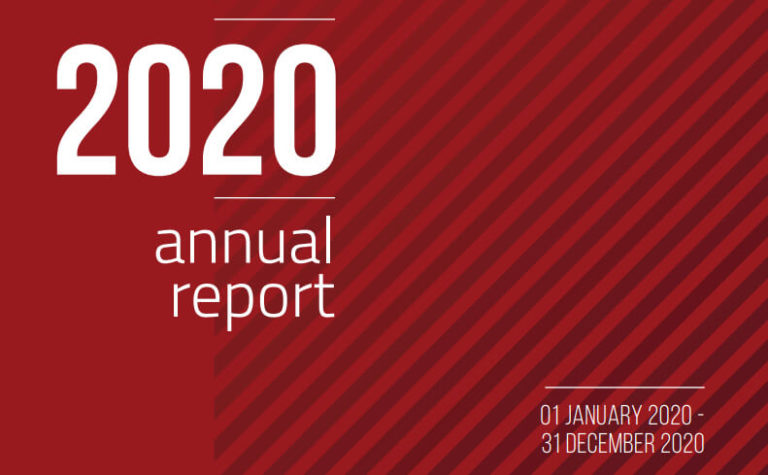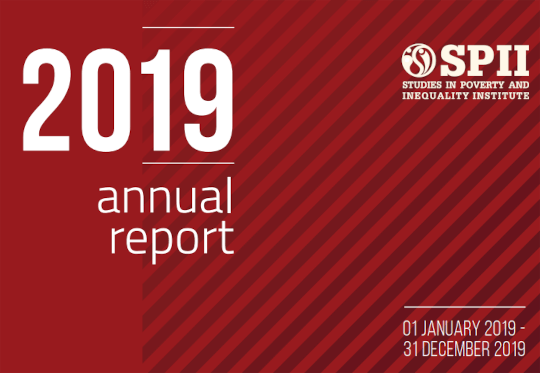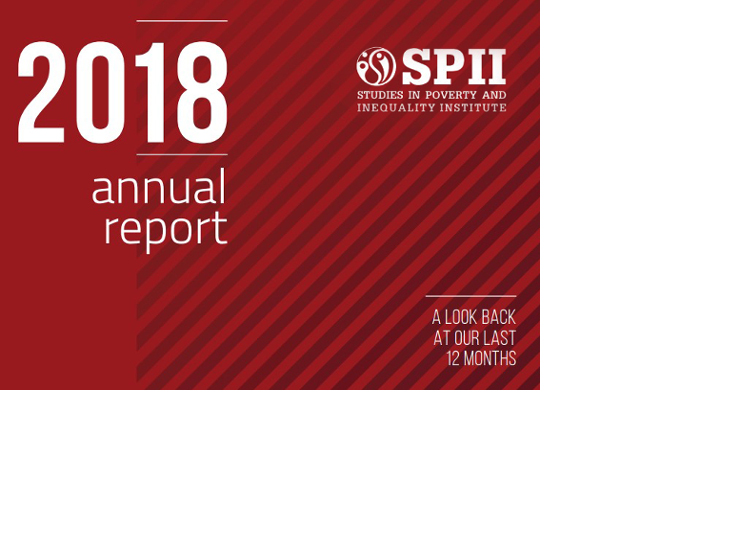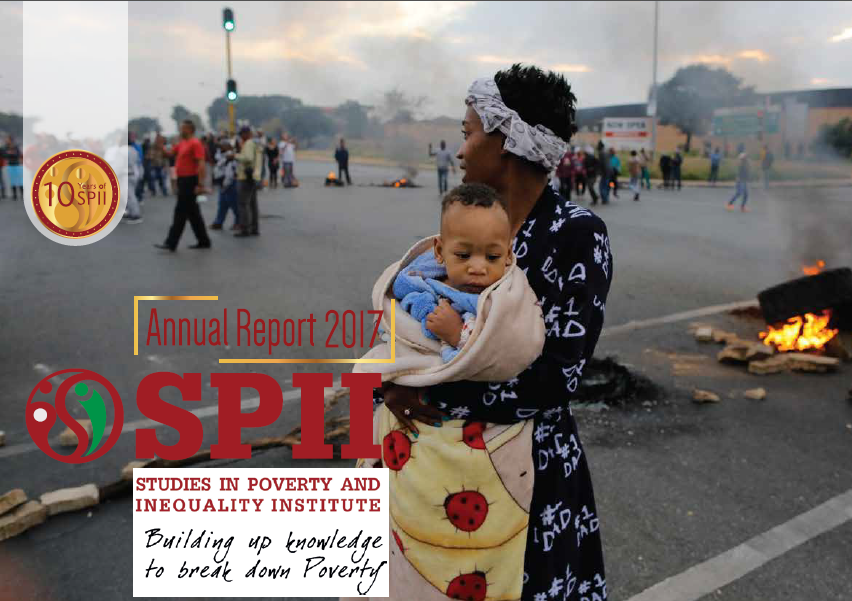Annual Reports
SPII Annual Report 2019
2020 is of course a year that will stand out for millions across the world as the year we hit pause. So much of what we had been busy doing suddenly went into stasis, and the incredible became the norm. We shut down busy.
In South Africa and the region many developments took place which would not have been regarded as possible. Our borders were closed and people were restricted to their own homes. Dogs were not walked and streets were as empty as an apocalypse set. People stopped going to work and schools were closed. South Africans began to look forward to the regular live streaming of messages from the President who became known as Papa and the broadcasts, the Family Meetings.
SPII Annual Report 2019
The past year has been very full and an incredibly exciting year for SPII. It highlighted a pivotal year in which we undertook an external review which shaped a new five year strategic plan, and enabled us to ensure that we remain a relevant, innovative and sustainable organisation. The SPII Annual Report offers a comprehensive review of our organisational performance, challenges and opportunities during our organisational year 2019.
SPII Annual Report 2018
South Africa has had quite a tumultuous year. The ruling party received a new president (Cyril Ramaphosa) and a revised ‘top six’ leadership, announced at its Elective Conference on 16 December 2017. In February 2018, after a highly charged stand-off with the sitting national president, Cyril Ramaphosa was sworn in, and presided over the 2018 State of the Nation Address (SONA). The SONA, delivered on 16 February 2018, just two months after the Elective Conference, promised a new dawn, a new beginning and a decisive break with the turmoil, corruption and the capture of the state that had characterised the leadership of President Jacob Zuma.
SPII Annual Report 2017
SPII director Isobel Frye recounts the major projects that the institute undertook in 2017, along with some of the learnings. Residents in Eldorado Park, Soweto, Lenasia and Yeoville talk to SPII about housing, social security, healthcare and the right to work. This project was done in collaboration with the Nelson Mandela Foundation, the Foundation for Human Rights, and the Ahmed Kathrada Foundation. It forms part of SPII's socio-economic rights monitoring tool.
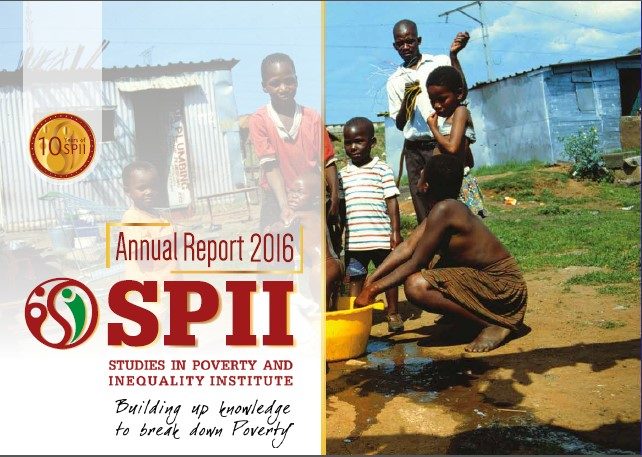
SPII Annual Report 2016
It is a remarkable honour to have been able to lead SPII for a full decade now. 2016 is the year of our tenth anniversary, and it is an achievement we celebrate with pride. It is also a moment that gives us the chance to reflect on our victories and our challenges alike, internally and in the external environment. In addition to growing older in 2016, our practice also deepened in terms of understanding better the challenges relating to effecting the change that our Mission and Vision speak to.
SPII ANNUAL REPORT 2015
As we approach a decade since SPII was established, we are proud to announce that the organisation has grown significantly; both in standing and scope, and that 2015 has been a watershed year for the organisation. This report will reflect how our research has not only steered public discourse around poverty and inequality but also served as the foundation of several motions that aimed to affect policy change. SPII’s mission, after all, is to champion the development of and advocacy for innovative and empirically-based social and economic policies which combat poverty, reduce inequality and promote sustainable development.
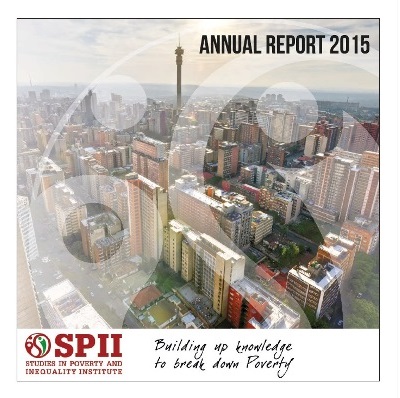
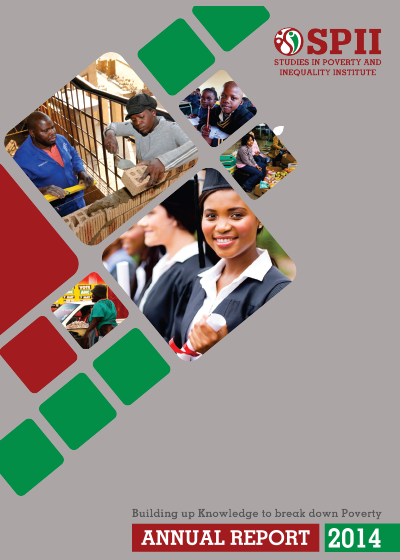
SPII ANNUAL REPORT 2014
2014 was an important year in many respects. It heralded in a new administration under the auspices of the Africa National Congress, the ruling part that has rules since democracy in 1994.
2014 also however saw unprecedented rise in activity in Parliament with opposition and minority parties using the chambers of parliament to raise questions and objections in a manner that caused some political analyst concern regarding the robustness of the Houses and the ability to incumbent parliamentary office bearers to provide necessary levels of impartial and effective leadership to guide the coming years of parliamentary work and debate.
SPII ANNUAL REPORT 2013
The past year has proved to be a very significant one and history will no doubt favour us with an ability to gauge the watershed nature of 2013 in the coming years. However, even with the distance of a few months, there are many interesting markers.
On the one hand we saw the registration of new political parties in a country which is increasingly being described as a single party state, in effect, rather than formally. The Economic Freedom Fighters (EFF), under the leadership of Julius Malema as Commander-in–Chief, is mobilising their red beret wearing members under a popular, if not somewhat populist, declaration of war against the capitalist enemy. Theirs might indeed prove to be a more successful “war on poverty” than the plan launched by the ruling African National Congress, which lacked either aes.
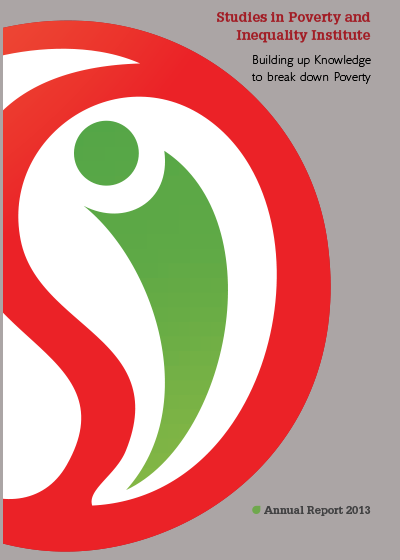
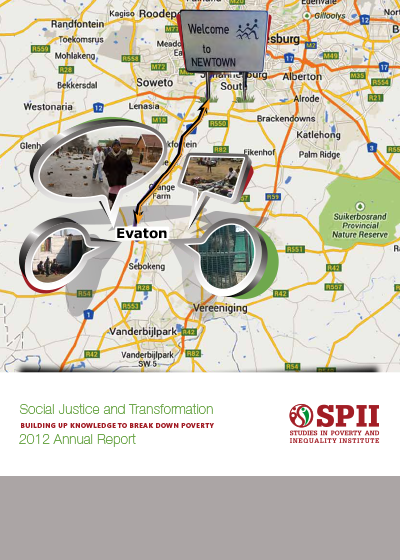
SPII ANNUAL REPORT 2012
Part of the historic rationale for the establishment of SPII in 2006 was the desire to contribute knowledge and research around poverty and inequality for the civil society sector in South Africa
and the sub-region. Having come from civil society and the trade union sector, the founding trustees were concerned about the apparent absence of new data and knowledge that was being generated for use by campaigns and submissions that were being generated by the sector.
The theory of change, as it is increasingly referred to, that drove the view of the founding trustees was that through undertaking a combination of primary qualitative research and secondary policy analysis, we could assist in driving
forward anti-poverty policies that were appropriate in their design, their objectives and their scale.
SPII ANNUAL REPORT 2010
2010 has been a very interesting year in many ways for South Africa. Of course, the headlines were dominated by the FIFA World Cup, and this saw millions of South Africans (and of course, people from all over the world), jostled together in often freezing Fan Parks, united in a passion that appeared to mediate some of the growing divides that resonate in our country.
These are divides that haunt us from Apartheid days, as well as new ones that reflect the harsh inequalities which continue to reproduce the racial, spatial and gendered divisions of the past.
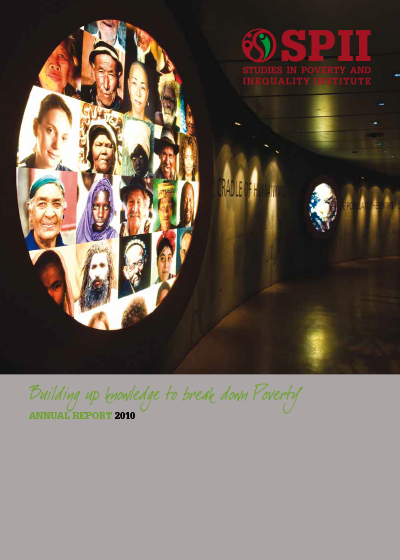
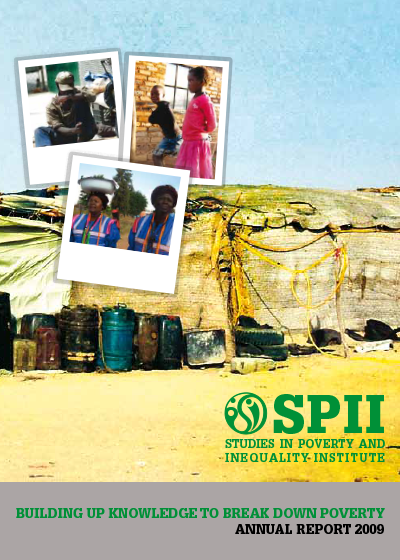
SPII ANNUAL REPORT 2009
As we reflect upon 2009 in this report, it appears that the South African landscape continues to be one characterised by a state of flux in respect of social, economic and political contestations. Yesterday’s certainties can be quickly forgotten as new relations or centres of interest are forged and new priorities emerge.
What is however certain, are the challenges that exist for the country to build the foundational values required to complete the transformation of liberation.
SPII ANNUAL REPORT 2008
2008 has been a very full year, and one of remarkable consolidation for SPII.
Growing up rapidly from infancy, SPII is increasingly being acknowledged across the board for being an institute that provides good and sound research and analysis without compromising its commitment to working towards ending poverty and the alleviation of its effects in the short term
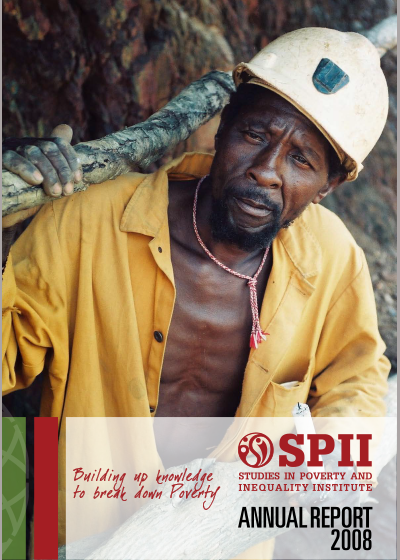
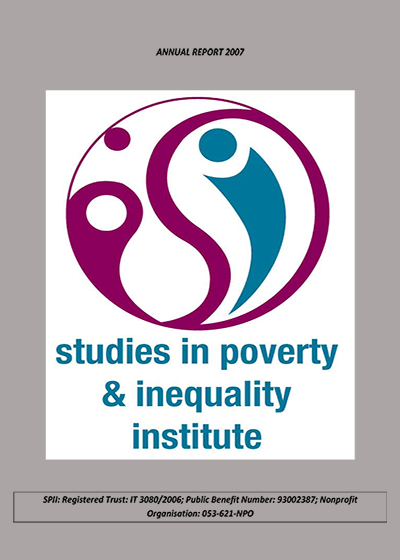
SPII ANNUAL REPORT 2007
For SPII, 2007 was a year of great achievements and many firsts. It has been a great privilege being the Director of this young organisation for this period. As an institute we have built many partnerships with people and organisations nationally, regionally and internationally. We have been able to produce out first four publications which we trust have assisted others in their work, and we have brought together exciting people to tease out solutions to issues that we have struggled to resolve ourselves.

